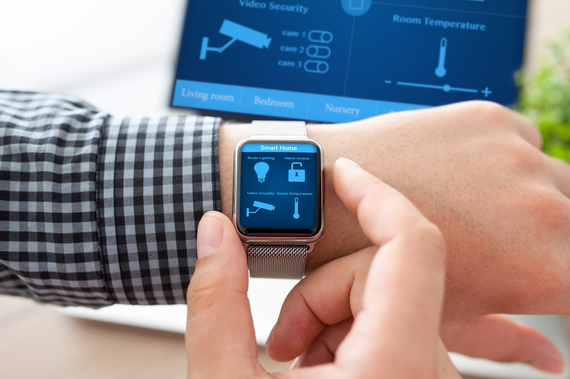From plumbers to nurses -- technology will increasingly become part of every job. As Internet of Things (IoT) devices become more and more ubiquitous in the world around us, it seems only logical that they will begin to affect our jobs and workplaces.
Think your job or industry is immune? Think again.
Traditional jobs will become hybrids
As Internet connected devices pop up in every field, we will begin to see the emergence of hybrid jobs -- think medical IT, robotics and agriculture, data analysis and human resources. New jobs will be springing up everywhere. A warehouse that never needed an IT department before will suddenly require one to keep its sensors up and running, and they will need a data analyst to help them understand what all those sensors are telling them.
Your boss will be watching
It's no surprise that now that we can put sensors on anything, people will put sensors on everything, including their employees. Products already exist that put sensors in employee ID badges and office furniture that can monitor not just productivity but employee interactions as well.
But even though employees will be more monitored than ever before, IoT devices can also work to their benefit. Warehouse workers for Tescos in the UK are wearing sensors that help them be more productive by planning their work tasks around efficiency. Sensors can also help monitor working conditions to keep employees safer.
C-level executives will have a new focus
Executives in every field will have new areas to focus on. Chief operating officers will be concerned with finding the best, fastest, and most efficient ways to put the new technology to use in their existing companies. Chief financial officers will be looking for the return on investment for these new technologies, and CEOs will have to be watching the big picture, looking at the data, and ensuring that the right questions are being asked to ensure that these innovations are having a positive impact
Keep track of everything
If you've ever worked in retail, you know the special "joy" of doing inventory manually: counting up row upon row of products and trying to make them tally with the inventory in the computer system.
Soon, that sort of project may be a thing of the past. Hospitals already use geolocators to tag every piece of equipment so that workers can keep track of where things are in real time. This could easily be extended not just to office equipment (no more stealing Post-It notes or boxes of pens!) but also inventory.
Managing inventory, filling orders, even keeping track of equipment and workers in the field will become automatic.
Improve your commute
Today's Internet connected cars are just the tip of the iceberg in terms of what's possible. In the future, cars will be able to communicate with everything from the actual street to the traffic lights. Sensors that can detect traffic patterns and communicate with the cars to reroute vehicles around trouble spots could shave valuable minutes off your commute every day.
In addition, as more jobs are done via computer, more people will be able and allowed to telecommute from home. Eventually, for many, the city where you live and the city where you work will not necessarily have even a time zone in common.
Cheaper, greener manufacturing
One upside of this tsunami of big data from sensors is that manufacturers will be able to optimize their processes to use less energy, produce less waste, and be as efficient as possible.
This will eventually reduce the costs of manufactured goods, and will even facilitate the switch to renewable sources of energy for major manufacturers.
Save time and energy all day
As more and more objects and spaces become Internet connected, your smart phone will act as a sort of remote control for your life. It will speed up transactions everywhere you go.
Think about the mobile banking apps that already save you a physical trip to the bank by allowing you to deposit a cheque via a photo on your phone. Your phone will interact with sensors that you may not even be aware of to help gather data that will assist you through your day -- and even act on your behalf.
The time is coming when your refrigerator may sense that you're low on milk and place an order with the local grocery delivery service so that you have fresh milk delivered without you ever having to interact with the grocer, or even a device.
These sorts of innovations may hurt some jobs (fewer cashiers needed at the grocer, for example) but will create other jobs (like the grocery delivery person, or the stocker who fills the order).
In short, as IoT devices become more and more ubiquitous, none of us will be able to escape their effects. Some will be positive, some negative, but hopefully the balance will ultimately be in our favour.
As always, let me know your thoughts, concerns and ideas in the comments below.

